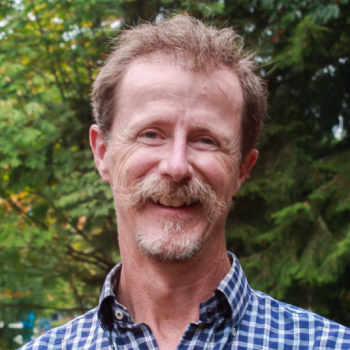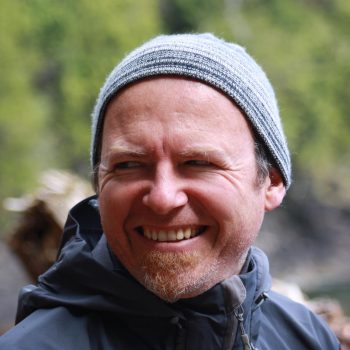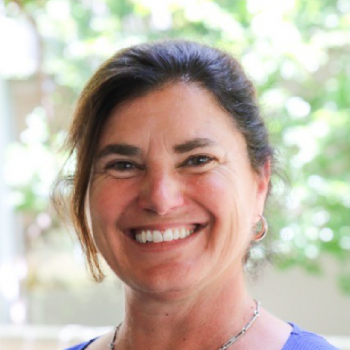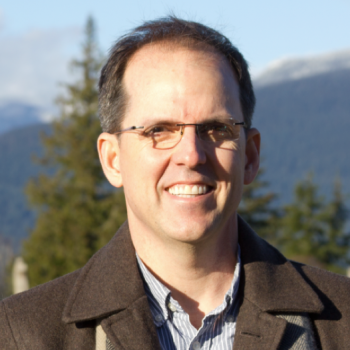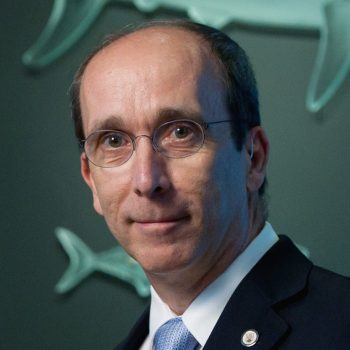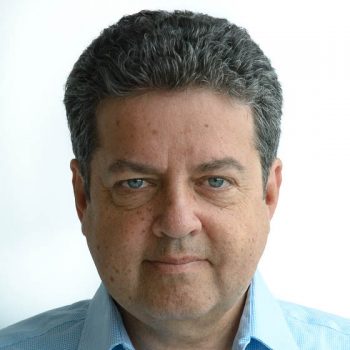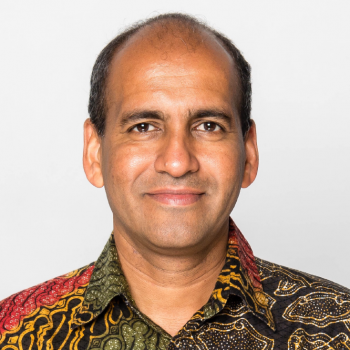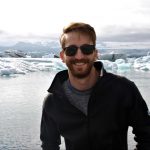Bio
Dr. Leila M. Harris is a Professor at the Institute for Resources Environment and Sustainability (IRES) and the Institute for Gender, Race, Sexuality and Social Justice (GRSJ) at the University of British Columbia. She also serves as Co-Director for UBC’s Program on Water Governance, is a member of the EDGES research collaborative (Environment and Development: Gender, Equity, and Sustainability Perspectives), and is an Associate of the Department of Geography, and the Peter Wall Institute for Advanced Studies at UBC.
Harris’s work examines social, cultural, political-economic, institutional and equity dimensions of environmental and resource issues. Her current research focuses on the intersection of environmental issues and inequality / social difference, water governance shifts (e.g. marketization, participatory governance), in addition to conducting a multi-sited analysis of the non-material dimensions of water insecurity, highlighting themes such as emotions, trust, senses of belonging and state legitimacy (e.g. South Africa, Brazil, and Canada). Harris also served as principal investigator for the SSHRC-funded International WaTERS Research and Training Network focused on water governance, equity and resilience in the Global South.
Projects
Beyond Access: Comparative Analysis of Non-material Dimensions of Water Insecurities Current
https://edges.sites.olt.ubc.ca/research/beyond-access-comparative-analysis-of-non-material-dimensions-of-water-insecurities/
Awarded a SSHRC Insight Grant, this research project has three goals. First, it advances conceptualization and empirical evidence for non-material elements of water insecurity. Second, it examines theoretical and empirical linkages between household water (in)security and citizen engagement and participation across case study sites (e.g. South Africa, Brazil, Canada). Third, it develops and extends narrative, visual, and comparative methods for water insecurity studies. This project will contribute to our understanding of meanings and experiences of water insecurity and how these impinge on engagement and other key features of water governance. Team members: Dr. Leila Harris, Dacotah Splichalova, Dr. Wendy Jepson, Dr. Shannon Walsh, and Dr. Mary Galvin.
Evolving Sites and Scales of Environmental Governance Current
Over the past decade, I have been conducting a comparative investigation of changing scales and sites of environmental governance, with focus on water management and institutions, and also lived experience of governance changes, notably in the daily lives of women and marginalized community members in different locations.
Water Governance in Accra and Cape Town: Access, Citizenship, and Narrative Completed
https://edges.sites.olt.ubc.ca/research/edges-comparative-water-governance-in-africa-research-project-cwgar/
From 2012-onwards, I have worked with other members of the EDGES research collaborative to investigate the lived realities of water governance changes for marginalized residents, notably in underserved settlements in Cape Town, South Africa and Accra Ghana.
Water Governance dimensions of Emergent Watershed Metagenomics Technologies Completed
www.watersheddiscovery.ca
Working with a large collaborative team led by P. Tang and J. Isaac Renton at the University of British Columbia and British Columbia Centers for Disease Control, this project investigated key water governance questions in relation to possibilities for novel water testing for human and ecosystem health using eco-genomics (or metagenomics) technology.
Water Quality and Governance for First Nations, particularly in British Columbia Completed
https://edges.sites.olt.ubc.ca/research/assessing-drinking-water-governance-in-british-columbia-water-quality-in-first-nations/
Research on this theme includes focus on water quality monitoring and governance capacity in BC First Nation communities, as well as a host of issues important to include first nations water security.
Socio-spatial dimensions of Environmental Politics and Activism in Contemporary Turkey Completed
Drawing on focus groups and interviews conducted at four sites (Istanbul, Ankara, Diyarbakir, and Sanliurfa), this research engaged everyday citizen narratives of environmental politics and meanings in contemporary Turkey.
Developmental and Environmental Change in Southeastern Turkey Completed
This long-term research effort (beginning in 2001) considers questions of: a) state theory and shifting political subjectivities in relation to developmental and environmental change associated with large-scale transformation of the upper Tigris-Euphrates basin as part of the Southeastern Anatolia Project (GAP); b) narratives of environmental change and implications for sustainability studies; c) issues of social difference, specifically gender and ethnicity, as impetus for, and effects of, state-led development in the Southeastern Anatolia region.
Featured Publications
Boelens, R., Escobar, A., Bakker, K., Hommes, L., Swyngedouw, E., Hogenboom, B., Hujibens, E.H., Jackson, S., Vos, J., Harris, L.M., Joy, K.J., de Castro, F., Duarte-Abadía, B., Tubino de Souza, D., Lotz-Sisitka, H., Hernández-Mora, N., Martínez-Alier, J., Roca-Servat, D., Perreault, T., Sanchis-Ibor, C., Suhardiman, D., Ulloa, A., Wals, A., Hoogestegar, J., Hidalgo-Bastidas, J.P., Roa-Avendaño, T., Veldwisch, G.J., Woodhouse, P., & Wantzen, K.M. (2022). Riverhood: political ecologies of socionature commoning and translocal struggles for water justice, The Journal of Peasant Studies, https://doi.org/10.1080/03066150.2022.2120910. Open access to publication available here.
Harris, L.M. (2022). Learning from Aotearoa: Water governance challenges and debates. New Zealand Geographer. https://doi/org/10.1111/nzg.12334. Subscription access to publication available here.
Sengupta, M., & Harris, L.M. (2022). Interrogating differences: intersectionality and participatory livelihood development in the upland forest of Tripura (Northeast India). Geoforum 133, 59-68. https://doi.org/10/1016/j.geoforum.2022.02.002. Subscription access to paper available here.
Tremblay, C. & Harris, L.M. (2022). Water governance in two urban African contexts: agency and action through participatory video. Research for All, 6(1). DOI: 10.14324/RFA.06.1.04. Open access to paper available here.
Harris, L. M. (2021) Towards narrative political ecologies. Environment and Planning E: Nature and Space. https://doi.org/10.1177/25148486211010677. Subscription access to paper available here.
Özerol G., Harris L.M. (2020). Gender-Sensitive Analysis of Water Governance: Insights for Engendering Energy Transitions. In: Clancy J., Özerol G., Mohlakoana N., Feenstra M., Sol Cueva L. (eds) Engendering the Energy Transition. Palgrave Macmillan, Cham. Subscription access to publication available here.
McDowell, G., Harris, L., Koppes, M. et al. (2020). “From needs to actions: Prospects for planned adaptations in high mountain communities“. Climatic Change 163: 953-972. https://doi.org/10.1007/s10584-020-02920-1. Open access to publication available here.
Meehan, K., Jepson, W., Harris, L.M., et al. “Exposing the myths of household water insecurity in the global north: A critical review”. WIREs Water. 2020; 7:e1486. https://doi.org/10.1002/wat2.1486. Open access to publication available here.
Harris, L. M., Staddon, C., Wutich, A., Budds, J., Jepson, W., Pearson, A. L., & Adams, E. A. (2020). Water sharing and the right to water: Refusal, rebellion and everyday resistance. Political Geography, 102245. Subscription access to publication available here.
Campero, C., Rodriguez, A., Harris, L and Kunz, N. (2019). APEC Women’s Participation in the Mining Industry. APEC Policy Partnership on Women and the Economy. APEC. Open access to publication available here.
Jepson, W., Wutich, A., & Harris, L. (2019). Water-security capabilities and the human right to water. In. F. Sultana & A. Loftus (Eds.), Water Politics: Governance, justice and the right to water. Routledge. Subscription access to publication available here.
Brisbois, B.W., Spiegel, J.M., & Harris, L. (2019). Health, environment and colonial legacies: Situating the science of pesticides, bananas and bodies in Ecuador. Social Science & Medicine, 239, 112529. doi:https://doi.org/10.1016/j.socscimed.2019.112529. Open access to publication available here.
Harris, L.M., Shah, S.H., Wilson, N.J. and J. Nelson (Eds). (2019). Special Issue “Water Governance: Retheorizing Politics.” Water 11. Open access to publication available here.
Harris, L.M. (2019). Assessing states: Water service delivery and evolving state-society relations in Accra, Ghana and Cape Town, South Africa. Environment and Planning C: Politics and Space. https://doi.org/10.1177/2399654419859365. Shareable version of publication available here.
Hommes, L., Boelens, R., Harris, L.M. and Gert Jan Veldwisch. (2019). Rural–urban water struggles: urbanizing hydrosocial territories and evolving connections, discourses and identities. Water International 44(2): 81-94. DOI: 10.1080/02508060.2019.1583311. Open access to publication available here.
Torio, P.C., Harris, L.M. and Leonora C. Angeles. (2019). The rural–urban equity nexus of Metro Manila’s water system. Water International 44(2): 115-128. DOI: 10.1080/02508060.2019.1560559. Shareable version of publication available here.
Hommes, L., Veldwisch, G.J., Harris, L.M. and Rutgerd Boelens. (2019). Evolving connections, discourses and identities in rural–urban water struggles, Water International 44(2): 243-253. DOI: 10.1080/02508060.2019.1583312. Open access to publication available here.
Campero, C. and Harris, L.M. (2019). The Legal Geographies of Water Claims: Seawater Desalination in Mining Regions in Chile. Water 11: 886. DOI: 10.3390/w11050886. Open access to publication available here.
Wilson, N.J., Harris, L.M., Joseph-Rear, A., Beaumont, J. and Satterfield, T. (2019). Water is Medicine: Reimagining Water Security through Tr’ondëk Hwëch’in Relationships to Treated and Traditional Water Sources in Yukon, Canada. Water 11(3): 624. https://doi.org/10.3390/w11030624. Open access to publication available here.
Ramón-Hidalgo, A. and L. Harris. (2019). Social capital, political empowerment and social difference: a mixed-methods study of an ecotourism project in the rural Volta Region of Ghana. Journal of Sustainable Tourism. 10.1080/09669582.2018.1546711. Shareable version of publication available here.
Brewis, A., Rosinger, A., Wutich, A., Adams, E., Cronk, L., Pearson, A., Workman, C., Young, S. & Household Water Insecurity Experiences-Research Coordination Network (Harris is listed as among the members of the HWISE consortium). (2019). Water Sharing, reciprocity and need: a comparative study of inter-household water transfers in Sub-Saharan Africa. Economic Anthropology 6(2): 208-21. Subscription access to publication available here.
Harris, L.M., McKenzie, S, Rodina, L. Shah, S.H., & N. Wilson. (2018) Water justice: key concepts, debates and research agendas. In: R. Holifield, J. Chakraborty, and G. Walker (Eds.) The Routledge Handbook of Environmental Justice. London and New York, Routledge. Shareable version of publication available here.
Wutich, A., J. Budds, W. Jepson, L. Harris, E. Adams, A. Brewis, L. Cronk, C. DeMyers, K. Maes, T. Marley, J. Miller, A. Pearson, A. Rosinger, R. Schuster, J. Stoler, C. Staddon, P.Wiessner, C. Workman, S.L. Young. (2018). Household water sharing: A review of water gifts, exchanges, and transfers across cultures. Wiley Interdisciplinary Reviews: Water 5(6):e1309. Subscription access to publication available here.
Stoler, J, A. Brewis, L. Harris, A. Wutich, A.L. Pearson, A.Y. Rosinger, R.C. Schuster, S.L. Young (2018) Household water sharing: a missing link in international health. International Health. ihy094. https://doi.org/10.1093/intlhealth/ihy094. Open access to publication available here.
Peloso, M., C. Morinville and L. Harris. (2018). Water Scarcity Beyond Crisis: Spotlight on Accra. International Journal of Urban and Regional Research. Open access to publication available here.
McFarlane, K. and Harris, L.M. (2018). Small systems, big challenges: Review of small drinking water system governance. Environmental Reviews. https://doi.org/10.1139/er-2018-0033. Shareable version of publication available here.
Kleiber, D, Harris, L.M., Vincent, A. (2018). Gender and Marine Protected Areas: A case study of Danajon Bank, Philippines. Marine Studies, 2018:107. Subscription access to publication available here.
Harper, S., Salomon, A.K., Newell, D., Waterfall, P.H., Brown, K., Harris, L.M., Sumaila, U.R. (2018). Indigenous women respond to fisheries conflict and catalyze change in governance on Canada’s Pacific Coast. Maritime Studies. Subscription access to publication available here.
Wutich, A., Budds, J., Jepson, W., Harris, L.M., Adams, E., Brewis, A., Cronk, L., DeMyers, C., Maes. K., Marley, T., Miller, J., Pearson, A., Rosinger, A., Schuster, R., Stoler, J., Staddon, C., Wiessner, P., Workman, C., Young, S. (2018). Water sharing across cultures: Gifts, exchanges and other transfers between households. Advanced Science News. Open access to publication available here.
Luker, E., and Harris, L.M. (2018). Developing new urban water supplies: Investigating motivations and barriers to groundwater use in Cape Town. International Journal of Water Resources Development. Open access to publication available here.
Ramón-Hidalgo, A-E., McFarlane, K., Raab, E., & Harris, L.M. (2018). Lessons from the EU approach to governing small water drinking systems. Program on Water Governance Policy Brief. www.watergovernance.ca. Shareable version of publication available here.
Yates, J. and L. Harris. (2018). Hybrid regulatory landscapes: The human right to water, variegated neoliberal water governance, and policy transfer in Cape Town, South Africa and Accra Ghana. World Development 110: 75 – 87. Subscription access to publication available here.
Tremblay, C. and L. Harris. (2018). Critical Video Engagements: Emotions, subjectivity and changing narratives of water resources through participatory video. Geoforum 90: 174-182. Open access to publication available here.
Wutich, A., Budds, J., Eichelberger, L., Geere, J., Harris, L.M., Horney, J.A., … Pearson, A.L. (2017). Advancing methods for research on household water insecurity: Studying entitlements and capabilities, socio-cultural dynamics, and political processes, institutions, and governance. Water Security, 2, 1-10. Subscription access to publication available here.
Jepson, W. E., J. Budds, L. Eichelberger, L. Harris, E. Norman, K. O’Reilly, A. Pearson, S. Shah, J. Shinn, C. Staddon, J. Stoler, A. Wutich, and S. Young. (2017). Advancing Human Capabilities for Water Security: A relational approach. Water Security 1: 46-52. Subscription access to publication available here.
Brisbois, B., J. Spiegel, L.M. Harris. (2017) Political Ecologies of Globalization and Health: Pesticide exposure in southwestern Ecuador’s banana industry. Antipode, 1-21. DOI: 10.1111/anti.12340. Open access to publication available here.
Richardson, J., H. Schrier, L. Harris (2017) Canada’s most precious resource. In. P.D. Tortell, M. Young & P.N. Nemetz (Eds.), Reflections of Canada: Illuminating Our Opportunities and Challenges at 150+ Years. Vancouver, BC: Peter Wall Institute for Advanced Studies.
Bakker, K., R. Simms, N. Joe, L. Harris. (2017). Indigenous Peoples and Water Governance in Canada: Regulatory injustice and prospects for reform. In R. Boelens et al. Water Justice, Cambridge. Subscription access to publication available here.
Dapaah, E., and L. Harris. (2017). Framing a Community’s Entitlement to Water access in Accra, Ghana: A complex reality. Geoforum. 82, 26-39. Shareable version of publication available here.
Harris, L.M., Chu, E., Ziervogel, G.. (2017). Negotiated Resilience. Resilience Journal. DOI: 10.1080/21693293.2017.1353196. Shareable version of publication available here.
Shah, S., N. Angeles, L.M. Harris. (2017). Worlding the intangibility of resilience: The case of rice farmers in a water-stressed region of the the Philippines. World Development 98: 400-412. Shareable version of publication available here.
Peloso, M.M., Harris, L.M. (2017). Pathways for Participatory Water Governance in Ashaiman, Ghana: Learning from Institutional Bricolage and Hydrosocial Perspectives, Society & Natural Resources, 30:12, 1491-1506, DOI: 10.1080/08941920.2017.1364451. Open access to publication available here.
Harris, L.M., Prsytajecky, N. et al. (2017). Improving Water Quality with Novel Diagnostics: Policy Brief of the Watershed Metagenomics for Improved Water Quality Testing. Program on Water Governance Policy Brief. www.watergovernance.ca. DOI: 10.13140/RG.2.2.36250.54722. Shareable version of publication available here.
Rodina, L., Baker, L.A., Galvin, M., Goldin, J., Harris, L.M., Manungufala, T., Musemwa, M., Sutherland, C., Ziervogel, G. (2017). Water, Equity and resilience in Southern Africa: Future directions for research and practice. Current Opinion in Environmental Sustainability, 26-27, 143-151. Shareable version of publication available here.
Harris, L.M, Kleiber, D., Rodina, L, Yaylaci, S., Goldin, J., & G. Owen (2017). Water Materialities and Participatory Governance: Implications of water quality and access for participatory engagement in Accra Ghana and Cape Town, South Africa. Society & Natural Resources 31(1):89-105. Shareable version of publication available here.
Harris, L.M. (2017). Political ecologies of the state: Recent interventions and questions and going forward. Political Geography 58(May): 90-92. Shareable version of publication available here.
Joe, N., K. Bakker & L.M. Harris. (2017). Perspectives on the BC Water Sustainability Act: First Nations respond to water governance reform in British Columbia. Vancouver, BC: Program on Water Governance. www.watergovernance.ca. Shareable version of publication available here.
Yates, J.S., Wilson, N.J. & Harris, L.M. (2017). Multiple ontologies of water: Politics, conflict and implications for governance. Environment and Planning D: Society and Space 35(5):797-815. doi:10.1177/0263775817700395. Subscription access to publication available here.
Jollymore, A., McFarlane, K. & Harris, L.M. (2017). Whose input counts? Evaluating the process and outcomes of public consultation through the BC Water Act Modernization. Critical Policy Studies. doi:10.1080/19460171.2017.1282377. Shareable version of publication available here.
Ziervogel, G., Pelling, M., Cartwright, A., Chu, E., Deshpande, T., Harris, L., Hyams, K., Kaunda, J., Klaus, B., Kavya, M., Pasquini, L., Pharoah, R., Rodina, L., Scott, D. & P. Zweig. (2017). Inserting rights and justice into urban resilience : a focus on everyday risk. Environment and Urbanization. 29(1): 123-138. Open access to publication available here.
Dunn, G., L. Harris & K. Bakker. (2017). Canadian Drinking Water Policy: Jurisdictional Variation in the Context of Decentralized Water Governance. In: S. Renzetti & D. P. Dupont (Eds.) Water Policy and Governance in Canada. Springer International Publishing. Subscription access to publication available here.
Beck, T., Rodina, L., Luker, E. & Harris, L.M. (2016). Institutional and Policy Mapping of the Water Sector in South Africa. Program on Water Governance. watergovernance.ca. Shareable version of publication available here.
Beck, T., Harris, L.M., Luker, E. (2016). Institutional and policy mapping of the water sector in Ghana. Program on Water Governance. watergovernance.ca. Shareable version of publication available here.
Harris, L.M., Rodina, L., Luker, E., Darkwah, A. & Goldin, J. (2016). Water Access in underserved areas of Accra, Ghana and Cape Town, South Africa: 2012 Survey Report. Program on Water Governance. www.watergovernance.ca. Shareable version of publication available here.
Jollymore, A., McFarlane, K. & Harris, L.M. (2016). Whose input counts? Public consultation and the Water Sustainability Act. Program on Water Governance. www.watergovernance.ca. Shareable version of publication available here.
Rodina, L. & Harris, L.M. (2016). Resilience in South Africa’s urban water landscape. Op-Ed: The Conversation.
Morinville, C. & Harris, L.M. (2016). Policy brief: Analyzing participatory urban water governance in Accra, Ghana. Program on Water Governance. www.watergovernance.ca. Shareable version of publication available here.
Harris, L. (2016) Theorizing gender, ethnic difference, and inequality in relation to water access and politics in southeastern Turkey. In: C. Ashcraft and T. Mayer (Eds) The Politics of Freshwater: Access, Conflict and Identity. Routledge, Earthscan. Shareable version of publication available here.
Rodina, L. & L. M. Harris (2016). Water Services, Lived Citizenship, and Notions of the State in Marginalised Urban Spaces: The case of Khayelitsha, South Africa. Water Alternatives 9(2): 336-355. Open access to publication available here.
Simms, R., Harris, L. M., Joe, N., & Bakker, K. (2016). Navigating the Tensions in Collaborative Watershed Governance: Water Governance and Indigenous Communities in British Columbia, Canada. Geoforum 73: 6–16. Shareable version of publication available here.
Harris, L.M., Rodina, L., Luker, E., Darkwah, A., Goldin, J. (2016). Survey data report on water access and governance in Accra, Ghana and Cape Town, South Africa: 2012 Survey Data Report. Program on Water Governance. www.watergovernance.ca. Shareable version of publication available here.
Harris, L. M., Kleiber, D., Goldin, J., Darkwah, A., and C. Morinville (2016). Intersections of Gender and Water: Comparative approaches to everyday gendered negotiations of water access in underserved areas of Accra, Ghana and Cape Town, South Africa. Journal of Gender Studies. DOI:10.1080/09589236.2016.1150819. Shareable version of publication available here.
Harris, L.M., Rodina, L. & Morinville, C. (2015). Revisiting the Human Right to Water from and Environmental Justice Lens, Politics, Groups and Identities Journal DOI: 10.1080/21565503.2105.1080619
Harris, L., L. Rodina, C. Morinville (2015) Revisiting the Human Right to Water from and Environmental Justice Lens. Politics, Groups and Identities 3(4): 660-665. DOI: 10.1080/21565503.2015.1080619 .
Harris, L., Phartiyal, J., Scott, D. and M. Peloso (2015) Women Talking about Water: Feminist Subjectivities and Intersectional Understandings. Canadian Women’s Studies Journal, Les Cahiers de la Femme, Special Issue on Women and Water, 30(2/3): 15-24
Harris, L. (2015). Scalar Politics, Networks and Power in Water Governance. In: E. Norman, C. Cook and A. Cohen (Eds) Negotiating Water Governance: Why the Politics of Scale Matter, Ashgate: pp. 226-250.
Dunn, G., Harris, L. and K. Bakker (2015). Microbial Risk Governance: Challenges and Opportunities in Canada. Canadian Water Resources Journal 40(3): 273-249
Harris, L. (2015) Hegemonic Water and Rethinking Natures Otherwise. In: W. Harcourt and I. L. Nelson (Eds) Practicing Feminist Political Ecologies. Zed Books: London, pp. 157-181.
Harris, L. (2015). Foreword. In: S. Buechler, A-M S. Hanson (Eds) A Political Ecology of Women, Water and Global Environmental Change. Routledge: London
Harris, L. (2015) Deconstructing the Map after 25 Years: Furthering Engagements with Social Theory. Cartographica 50(1): 50-53
Morales M, Harris L., and G. Öberg (2014) Citizenshit: the right to flush and the urban sanitation imaginary. Environment and Planning A, 46(12): 2816 – 2833.
Morinville, C. and L. M. Harris. (2014) Participation, politics, and panaceas: exploring the possibilities and limits of participatory urban water governance in Accra, Ghana. Ecology and Society 19 (3): 36. [online].
Morales, M. & L. Harris (2014). Using Subjectivity and Emotion ro Reconsider Participatory Natural Resource Management. World Development 64(2014): 703-712.
Dunn, G., Bakker, K., & L. Harris (2014). Drinking Water Quality Guidelines across Canadian Provinces and Territories: Jurisdictional Variation in the Context of Decentralized Water Governance. Int. J. Environ. Res. Public Health 11, 4634-4651.
Harris, L. (2014). Imaginative Geographies of Green: Difference, Postcoloniality, and Affect in Environmental Narratives in Contemporary Turkey. Annals of the Association of American Geographers, 104 (2): 801-815.
Dunn, G., Henrich, N., Holmes, B., Harris, L. & N. Prystajecky (2014). Microbial water quality communication: public and practitioner insights from British Columbia, Canada. Journal of Water and Health, 12(3): 584–595.
Kleiber, D., Harris, L.M., & A. Vincent (2014). Gender and small-scale fisheries: a case for counting women and beyond. Fish and Fisheries, Feb 2014 Early View.
Kleiber, D., Harris, L. M., & A.C.J. Vincent (2014). Improving fisheries estimates by including women’s catch in the Central Philippines. Canadian Journal of Fisheries and Aquatic Sciences. Online. 1139/cjfas-2013-0177
Cohen, A. & L. Harris (2014). Performing Scale: Watersheds as “Natural” Governance Units in the Canadian Context. In: M.R. Glass & R. Rose-Redwood, Eds (2014). Perfomativity, Politics, and the Production of Social Space. New York and London: Routledge.
Harris, L. and M. Islar. (2014). Neoliberalism, Nature and Changing Modalities of Environmental Governance in Contemporary Turkey. In: Atasoy, Y., Ed. (2014). Global Economic Crisis and the Politics of Diversity. London and New York, Palgrave MacMillan
Dunn, G., Harris, L., Cook, K. & N. Prystajecky. (2014). A comparative analysis of current microbial water quality risk assessment and management practices in British Columbia and Ontario, Canada. Science of the Total Environment, 458-469(2014): 544-552.
Harris, L. (2013). Elements of Feminist Political Ecology and Capabilities. In J. Goldin (Ed). Water and Capabilities Special Issue. E-bulletin of the Human Development and Capability Association (December 2013).
Harris, L. & M. C. Roa-García. (2013).Recent waves of water governance: Constitutional reform and resistance to neoliberalization in Latin America (1990–2012). Geoforum 50: 20-30.
Harris, L.M., J.A. Goldin, and C. Sneddon (Eds.) (2013). Contemporary Water Governance in the Global South: Scarcity, Marketization and Participation. London, UK: Routledge.
Harris, L. & C. Morinville (2013). Improving Participatory Water Governance in Accra, Ghana. Africa Initiative Policy Brief No. 7, CIGI Africa Initiative Policy Brief Series.
Harris, L. (2012). State as Socionatural Effect: Variable and Emergent Geographies of the State in Southeastern Turkey. Comparative Studies of South Asia, Africa and the Middle East 32(1), 25-39.
Mirosa, O. and L. Harris. (2011). Human Right to Water: Contemporary Challenges and Contours of a Global Debate. Antipode, 44 (3), 932-949.
Hawkins, R., and D. Ojeda with K. Asher, B. Baptiste, L. Harris, S. Mellott, A. Nightingale, D. Rocheleau, J. Seager and F. Sultana. (2011). Gender and Environment: Critical Tradition and New Challenges. Environment and Planning D: Society and Space 29(2011), 237-253.
Harris, L. (2011). (Neo)Liberal Citizens of Europe: Politics, Scales, and Visibilities of Environmental Citizenship in Contemporary Turkey. Citizenship Studies 15(6-7), 837-859.
Harris, L. and S. Alatout. (2010). Negotiating Hydro-Scales, Forging States: Comparison of the Upper Tigris/Euphrates and Jordan River Basins. Political Geography 29, 148 – 156.
Harris, L. (2009). States at the Limit: Tracing Evolving State-Society Relations in the Borderlands of Southeastern Turkey. EJTS: European Journal of Turkish Studies 10 [online].
Harris, L. (2009). Contested Sustainabilities: Assessing Narratives of Environmental Change in Southeastern Turkey. Local Environment 14(8), 699-720.
Harris, L. and H. Hazen. (2009). “Rethinking Maps from a More-than-Human Perspective: Nature-Society, Mapping, and Conservation Territories.” in C. Perkins, M. Dodge, and R. Kitchin (eds). Rethinking Maps: New Frontiers in Cartographic Theory. Routledge, 50-67.
Harris, L. (2009). Gender and Emergent Water Governance: Comparative Overview of Neoliberalized Natures and Gender Dimensions of Privatization, Devolution and Marketization Gender. Place and Culture 16 (4): 387-408.
Harris. L. (2008). Water Rich, Resource Poor: Intersections of Gender, Poverty, and Vulnerability in Newly Irrigated Areas of Southeastern Turkey. World Development 36(12): 2643-2662.
Harris, L. (2008). Modernizing the Nation. Postcolonialism, Postdevelopment, and Ambivalent Spaces of Difference in Southeastern Turkey. Geoforum 39: 1698-1708. Preprint PDF of the article here.
Hazen, H. and Harris, L. (2007). Limits of territorially-focused conservation: A critical assessment based on cartographic and geographic approaches. Environmental Conservation 35(1): 1-11. Preprint PDF of the article here.
Harris, L. (2006). Irrigation, Gender, and Social Geographies of the Changing Waterscape in Southeastern Anatolia. Environment and Planning D: Society and Space. 24 (2): 187–213. Preprint PDF of the article here.
Harris, L. and Hazen, H. (2006). Power of Maps: (Counter)-mapping for Conservation. Acme International E-journal of Critical Geographies. 4(1): 99-130. Preprint PDF of the article here.
Harris, L. and Harrower, M. (2006). Critical Interventions and Lingering Concerns: Critical Cartography/GISci, Social Theory, and Alternative Possible Futures. Acme International E-journal of Critical Geographies. 4(1): 1-10. Preprint PDF of the article here.
Harris, L. and Atalan, N. (2002/2004). Developing Women’s Spaces: Evaluation of the Importance of Sex-segregated Spaces for Gender and Development Goals in Southeastern Turkey. Kadin/Woman 2000. 3(2): 17-46. Preprint PDF of the article here.
